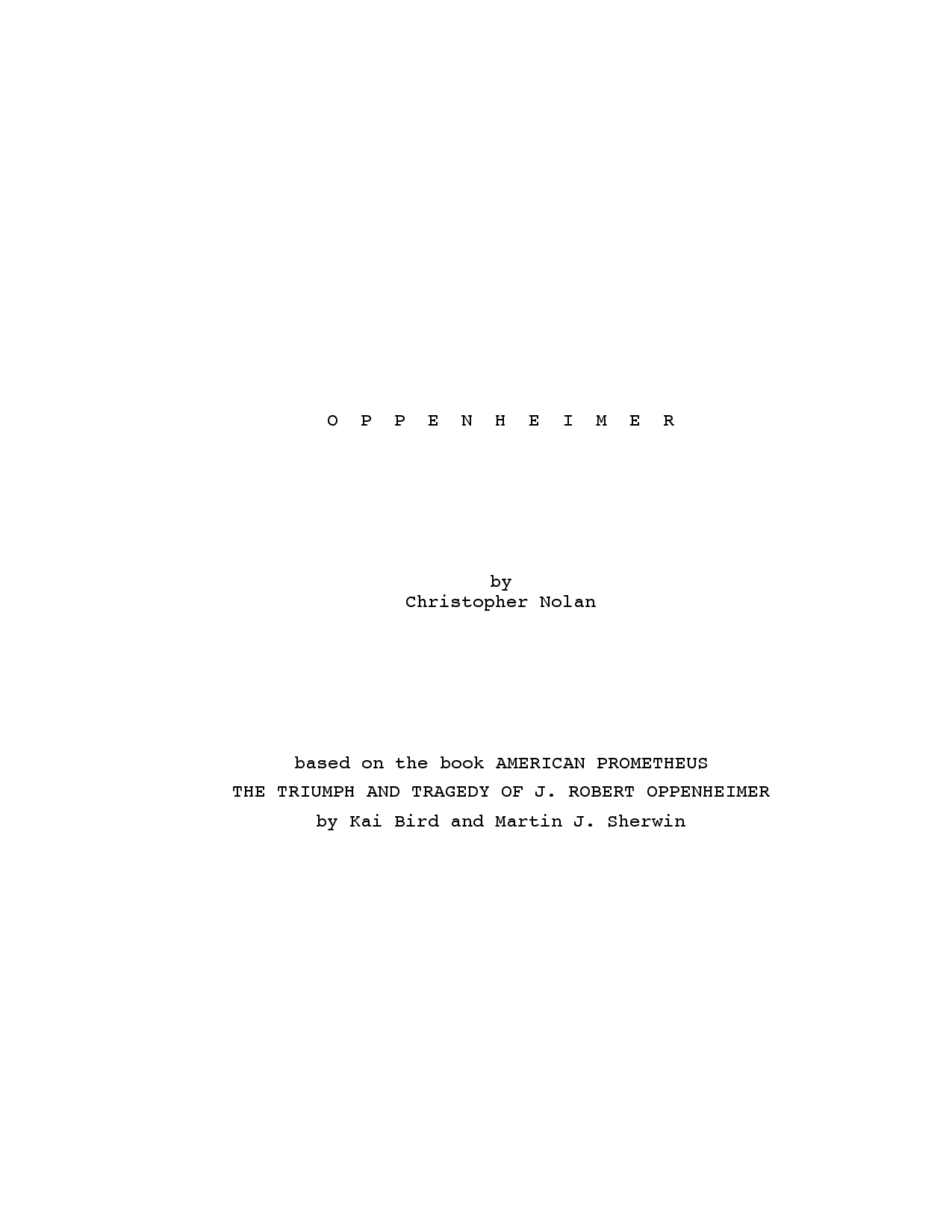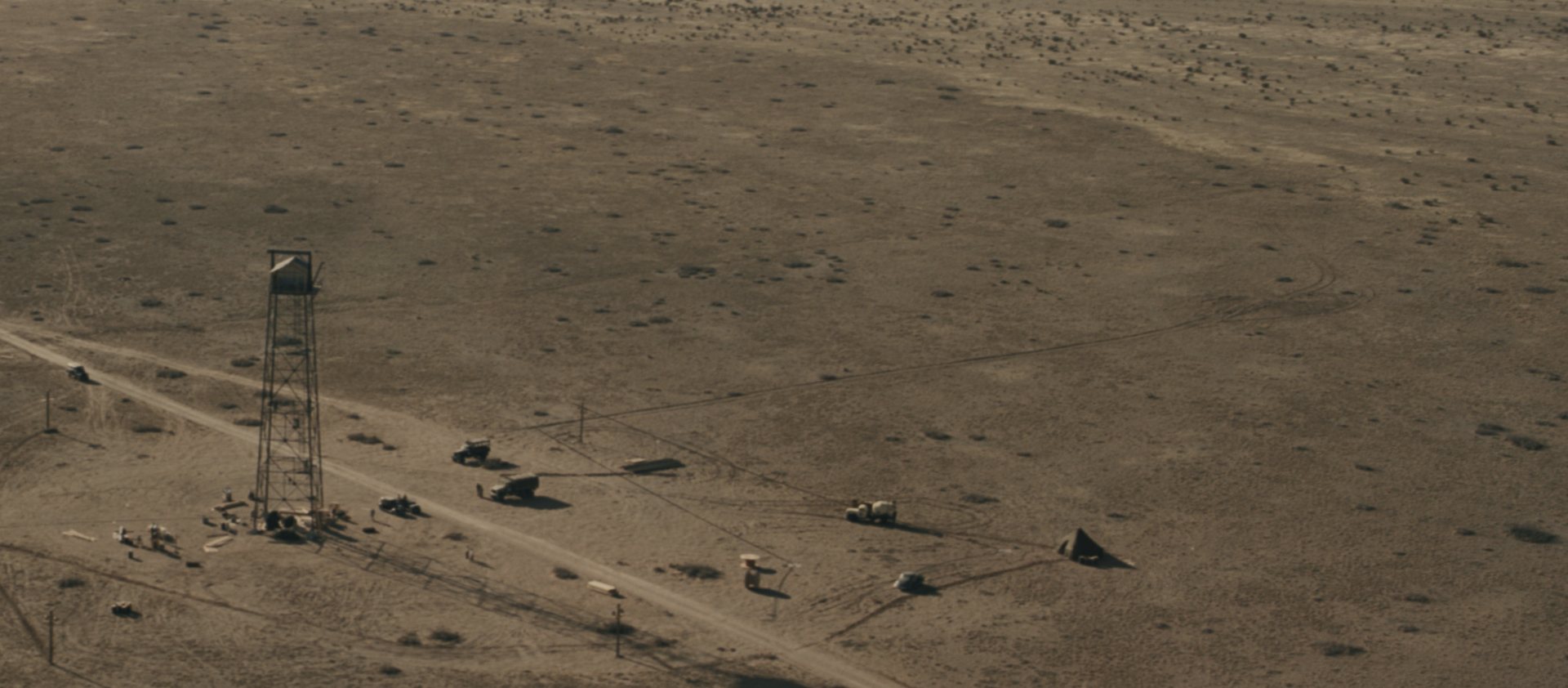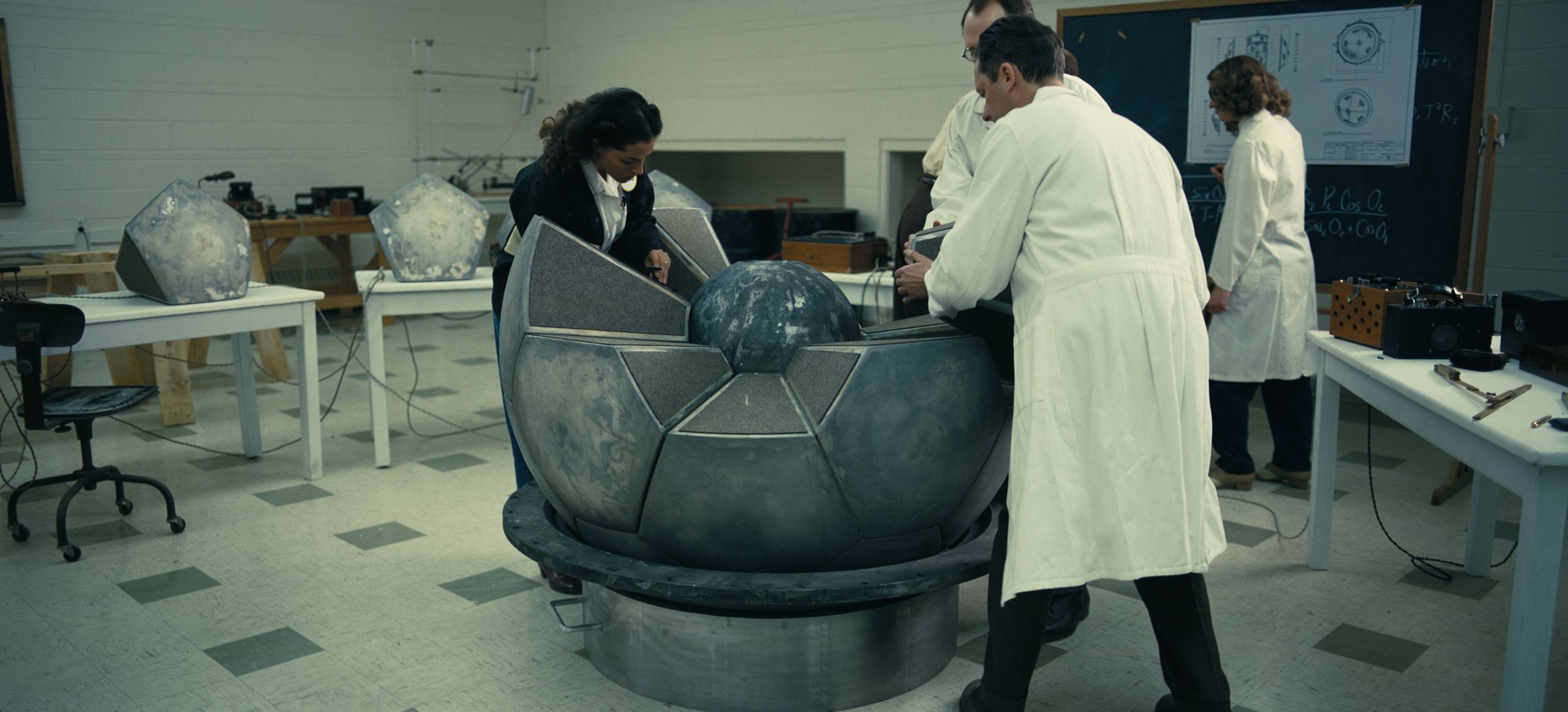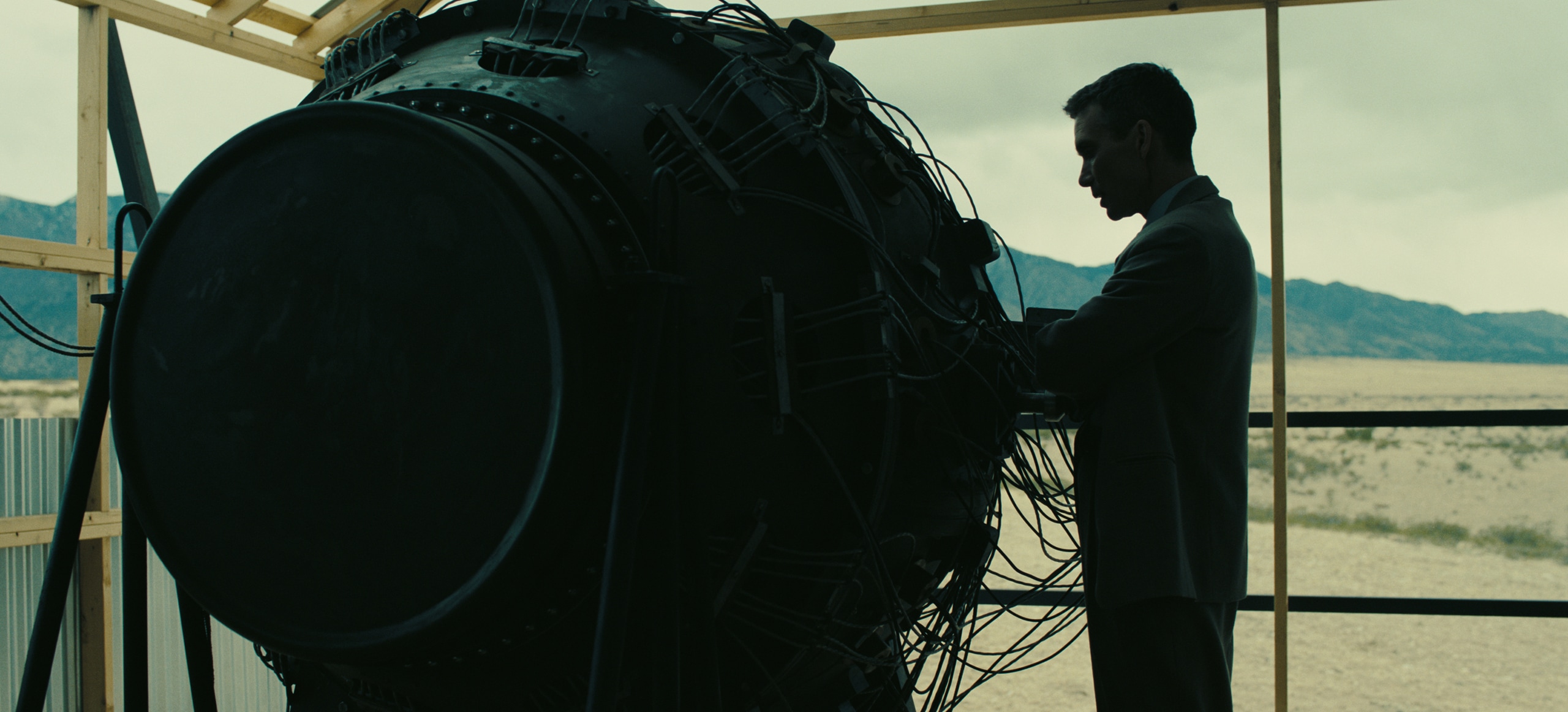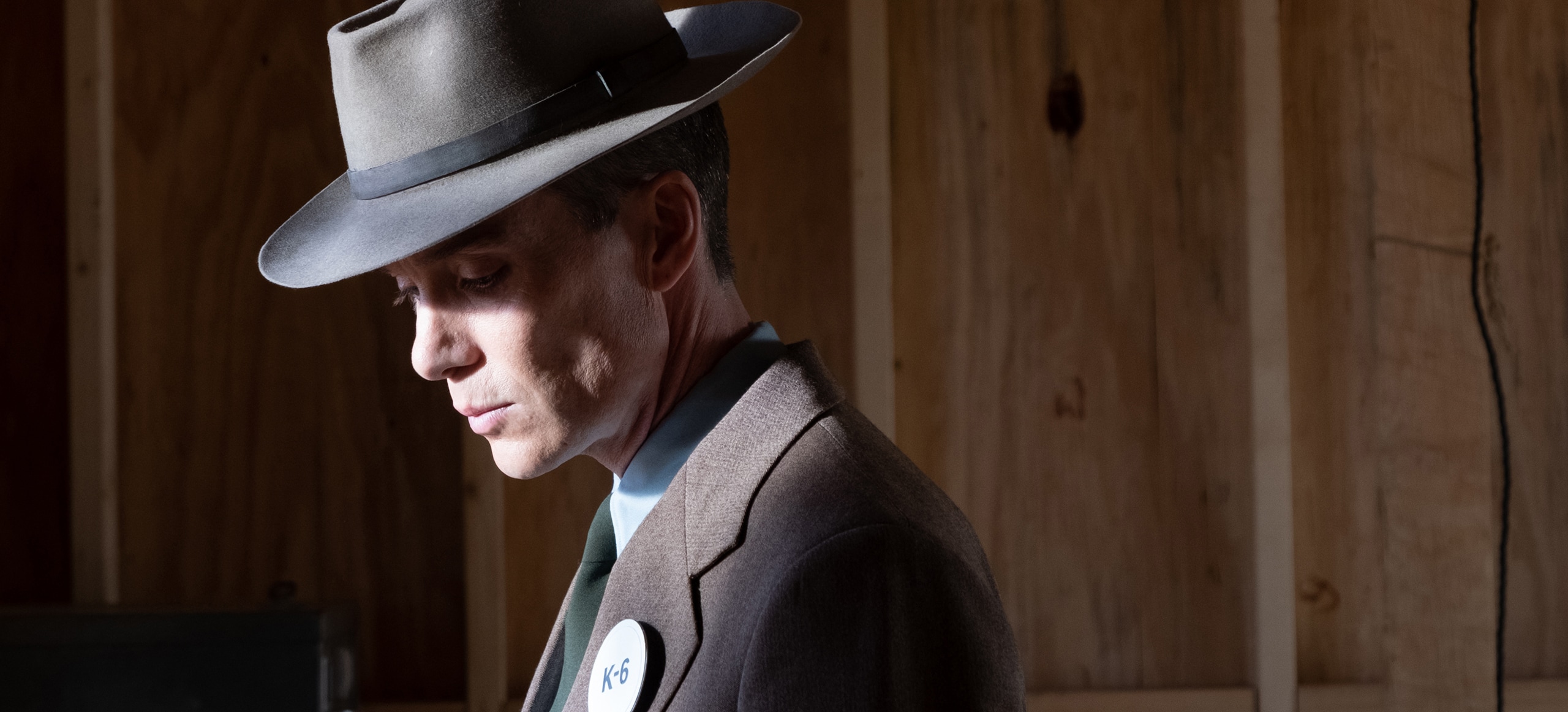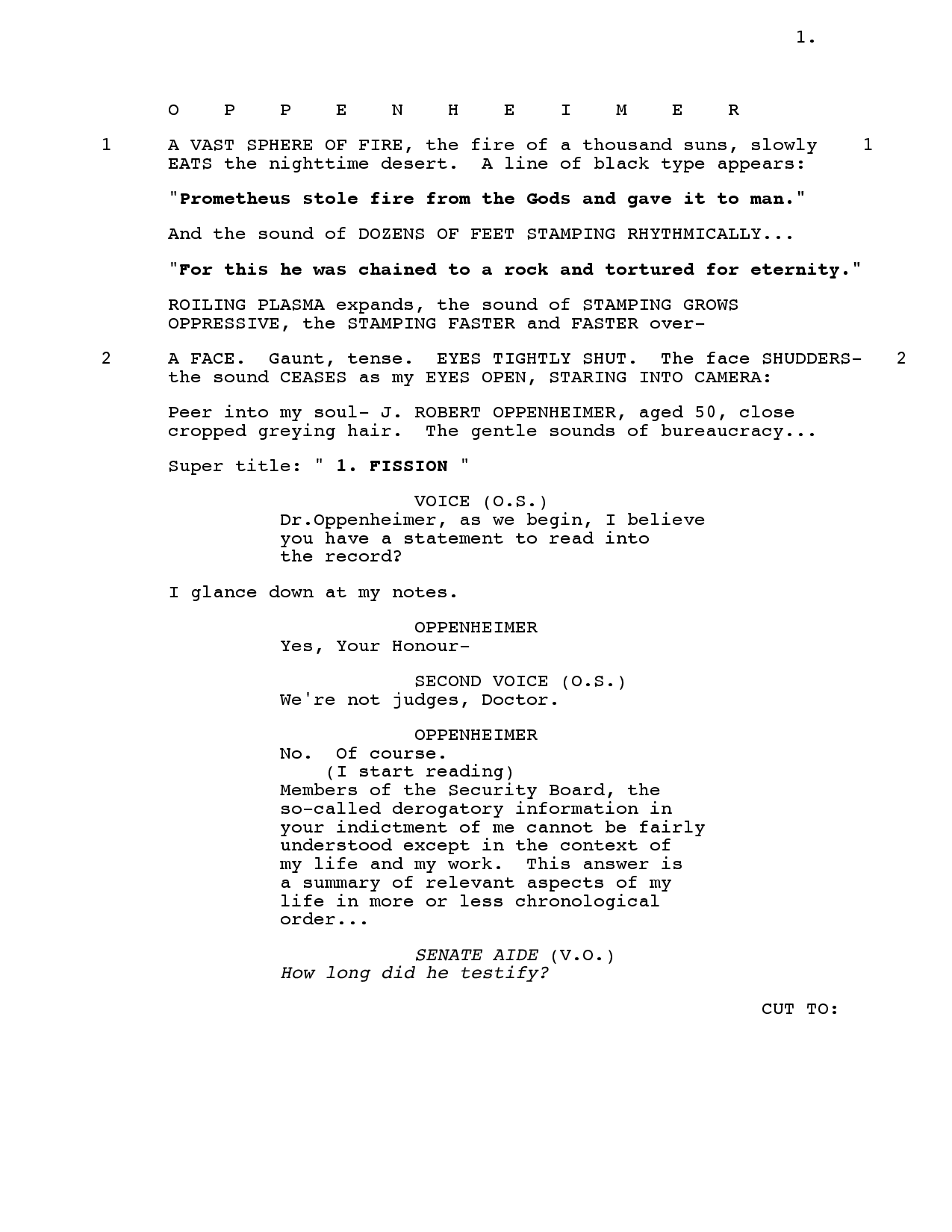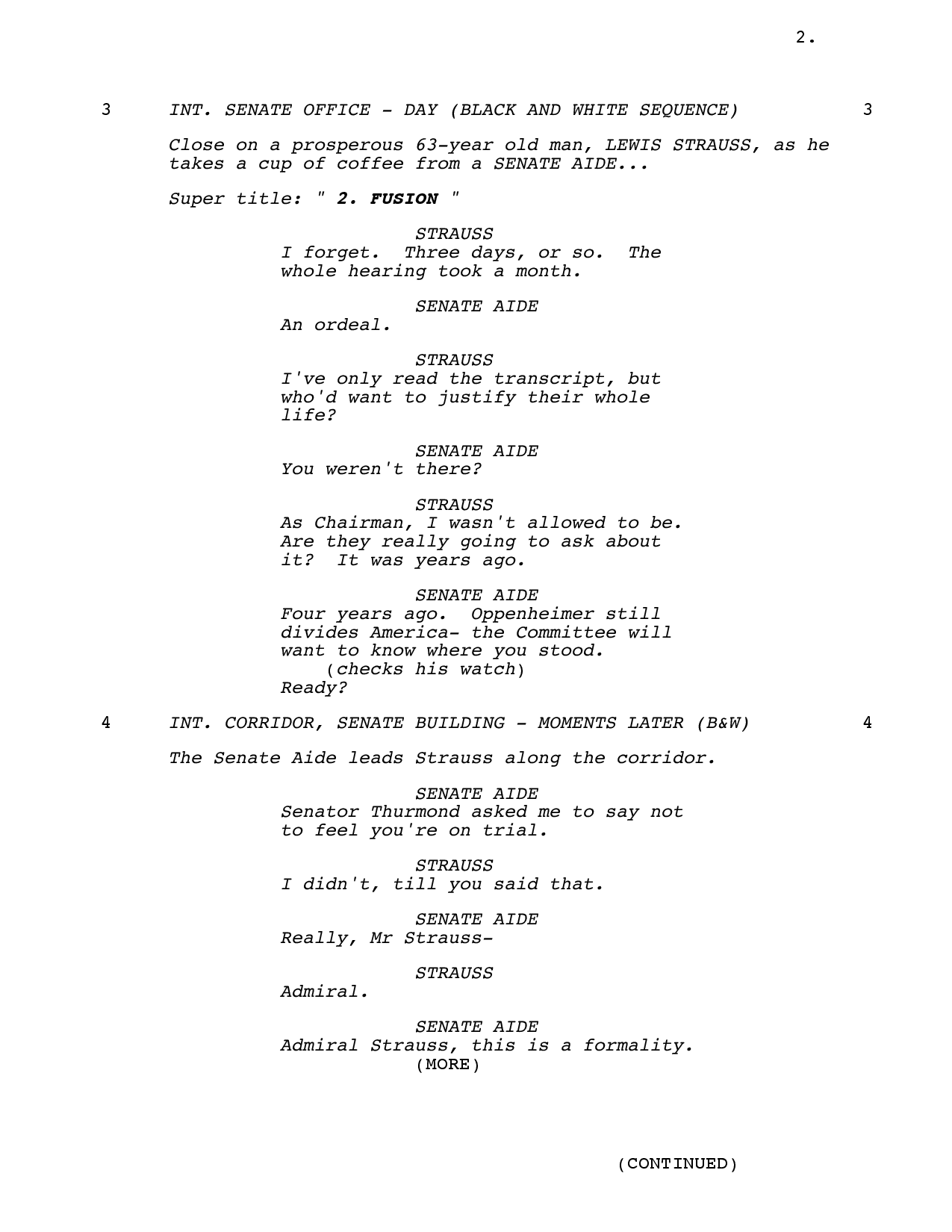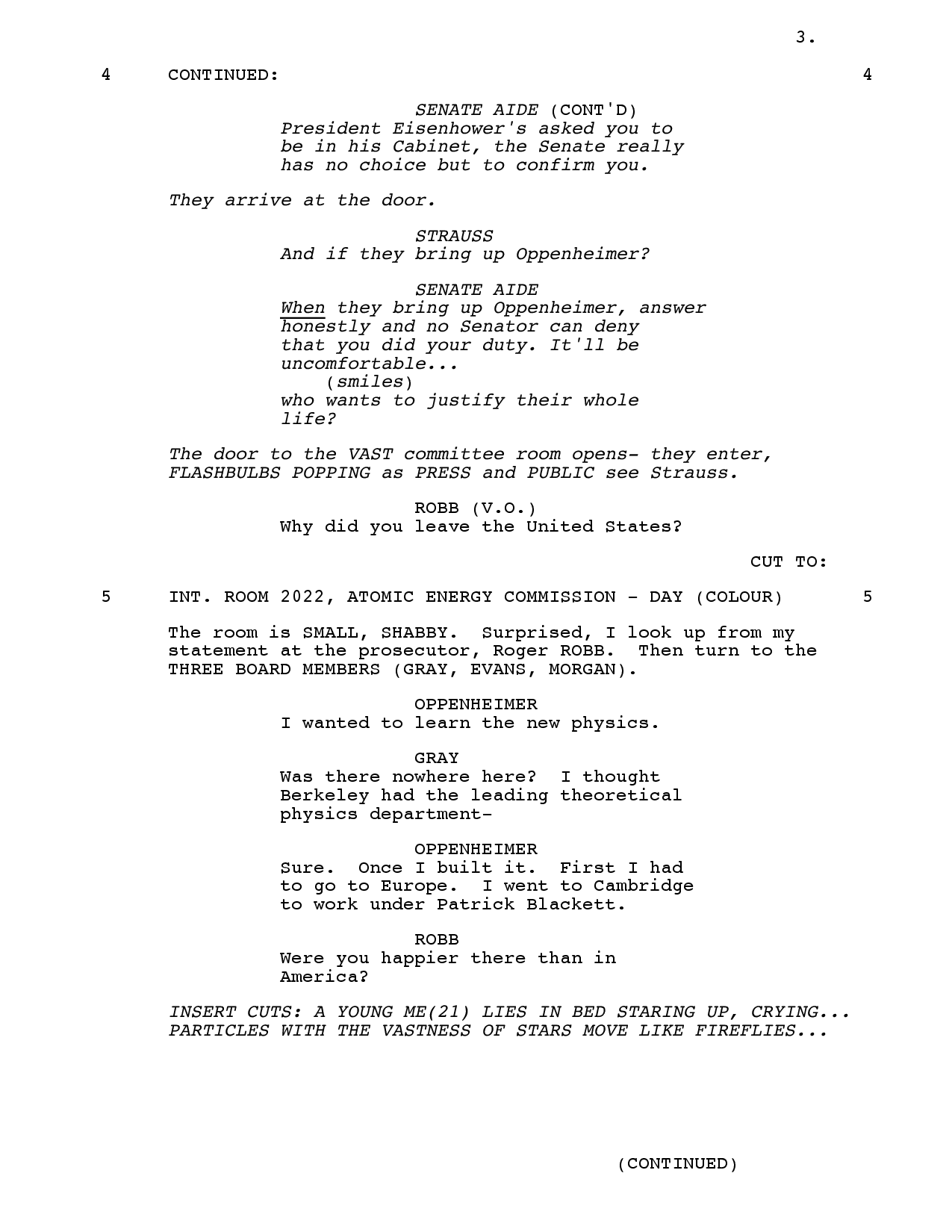Adapted Screenplay
Christopher Nolan
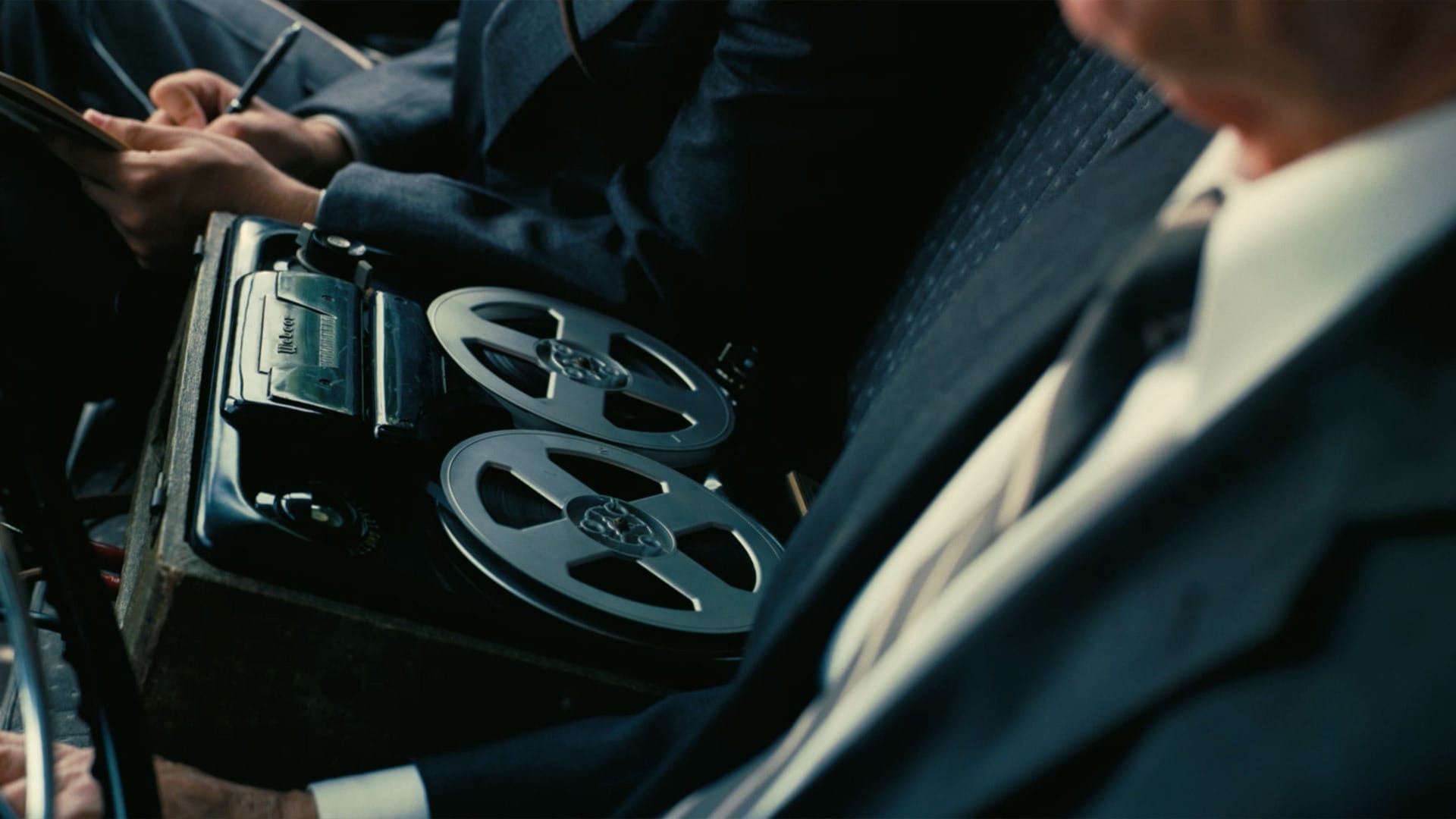
The origin of Nolan’s desire to make Oppenheimer lay in the fear that troubled the scientists of the Manhattan Project as they sought the secrets of fission to make a fusion bomb, a fear that Oppenheimer dubbed “the terrible possibility.”
“In the lead-up to the Trinity test, Oppenheimer and his team were dealing with the very small possibility that when they pushed that button and triggered that first bomb, they would set fire to the atmosphere and destroy the entire planet,” Christopher Nolan says. “There was no mathematical or theoretical basis on which they could completely rule out that possibility, however small. And yet, they pushed that button, anyway. It’s an extraordinary moment in human history. I wanted to take the audience into that room and be there for that conversation, and then be there when that button is pushed. It’s just the most incredible moment, if you think about it. The risk of it. The relationship between science, theory, intellect—the things that we can imagine—versus the practical nature of bringing these abstract ideas into the real world, dealing with them as concrete realities, and all their consequences.”
The Pulitzer Prize-winning book American Prometheus, by Kai Bird and Martin J. Sherwin, became a bible that informed and guided every aspect of the Oppenheimer production. During the screenwriting phase, it provided Nolan with rich stories of insight that helped him craft what interested him most, a critical portrait of Oppenheimer that not only dramatized formative and milestone events, but also explored his psychology and interrogated the consequences of his actions.
“Oppenheimer’s story is one of the great stories that there is,” Nolan says. “It’s full of paradoxes and ethical dilemmas, and that’s the kind of material I’m always interested in. While the movie tries to help the audience understand why people have done the things they’ve done, it’s at the same time asking should they have done the things they’ve done. At various points, we try to burrow into Oppenheimer’s psyche and take the audience on his emotional journey. That was the challenge of the film: To tell the story of a person who was involved in what was ultimately an extraordinary destructive sequence of events, but done for the right reasons, and tell it from his point of view.”
